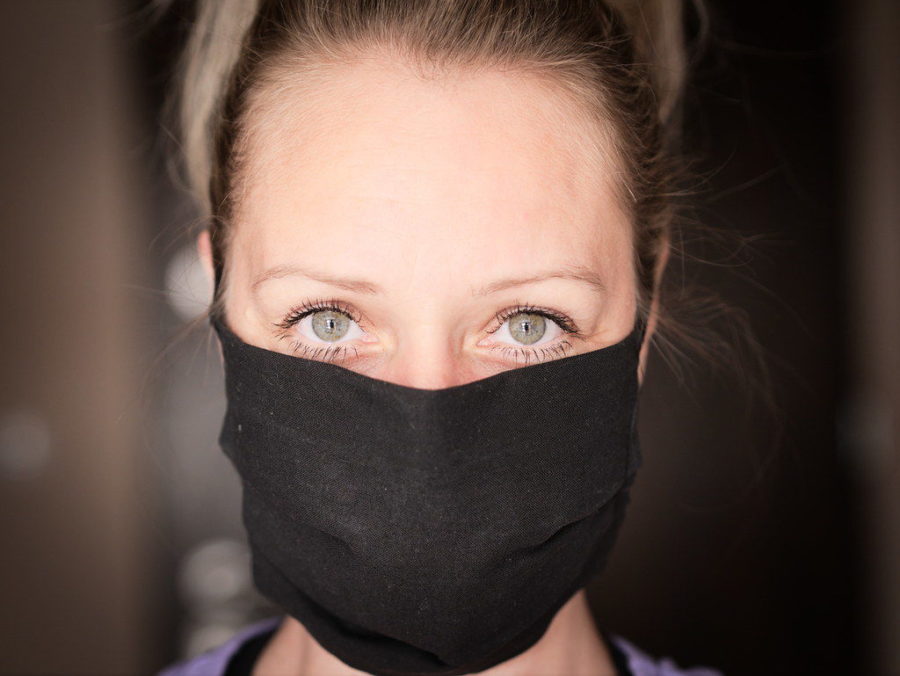Editorial: Why some Americans don’t wear masks
The ISD Editorial Board breaks down why some Americans refuse to wear masks and whether it is unconstitutional or not.
July 13, 2020
Masks have become a political issue in our society and many Americans have argued it is a constitutional right to not wear a mask. While they are legal, politics and culture play a big part in why people choose not to wear them.
Masks are incredibly polarized all across the country. For example, California Gov. Gavin Newsom issued guidance that requires most Californians to wear masks in public settings. Other states such as Delaware, New York, Virginia, Illinois and Washington have all followed suit. In the days and weeks following, the mandates have received criticism from residents and local officials who have argued that governors do not have the legal authority to make masks a requirement.
However, it has been proven that state and local governments have broad authority to issue emergency orders in a public health emergency. There are plenty of other examples in American society where public health and safety officials have issued broad mandates to protect their constituents. Before face mask mandates, seat belt laws were also broadly fought against. In 1984, New York became the first state to pass a mandatory seat belt law, with other states following soon after.
While there was clear evidence seat belts saved lives, a Gallup Poll from July 1984 showed that 65 percent of Americans opposed them and fewer than 15 percent of Americans said they used seat belts consistently.
Motorcycle helmet laws and laws on who can sell cigarettes are other types of protection laws that are welcomed in our society but were strictly opposed when they first were put into legislation.
Even with these mandates, many Americans defy these orders despite overwhelming evidence that suggests the use of face masks can significantly limit the transmission of coronavirus. Most times, it goes beyond politics, however.
“In times of uncertainty, humans tend to seek a sense of belonging,” said David Abrams, professor of social and behavioral science at the NYU School of Global Public Health.
“Those who choose not to wear masks may feel a sense of solidarity, almost as if they’re taking a stand against authority. Those who do likely regard it ‘as an act of altruism and a way of helping each other out,'” Abrams said.
If common sense prevailed, all Americans would wear face masks. But in light of the current political and social atmosphere, strong emotions can override rationality, and people look to leaders for guidance during these times.
Notably, President Donald Trump and Vice President Mike Pence have been reluctant to wear — and have refused to wear — masks in public. Pence had violated the famed Mayo Clinic’s standards in Minnesota and did not wear one during an April visit when he met with staff and patients. “People look at Pence at the Mayo Clinic and say: ‘Well, he’s in a hospital and didn’t wear a mask, why should I?”’ Abrams said.
In early April, “Trump had not made a point of not wearing a mask,” said pollster Chris Jackson, senior vice president of Ipsos Public Affairs. “Once he very clearly did not wear a mask in public, that transmitted a signal that if you’re a good supporter of the president, you don’t wear a mask.”
Unlike many countries in East Asia, before coronavirus, Americans were rarely asked to wear a face mask. Now Americans who don’t wear masks can be denied entry into stores and can even be barred from flying on certain airlines.
Americans who choose not to wear masks don’t want to admit this is the new normal. This may be a reaction, or overreaction, to authority. “There’s a certain bravado of being angry and defying requirements to wear a mask,” Abrams said. On the other hand, Americans rarely show the same reaction when they see signs that require them to wear shoes or shirts because abiding by those standards has become a part of our culture.
While the coronavirus pandemic rages on, masks will continue to be a controversial item across America. While politics and culture significantly impact why people choose, or not choose, to wear a mask, they are not unconstitutional. They are crucial for our personal safety and will help prevent further infections.







